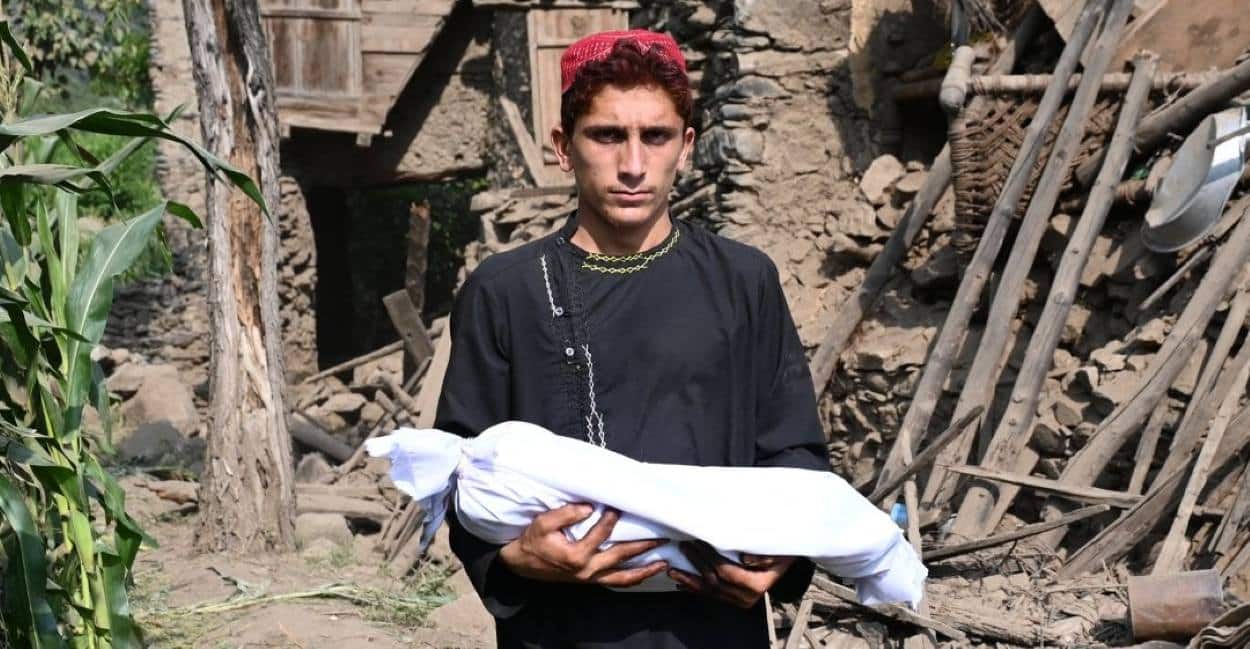Afghan officials confirmed that a magnitude-6.0 earthquake in eastern Afghanistan killed more than 2,200 people. Most deaths, 2,205, were reported in Kunar province, where over 3,600 people were also injured. In Nangarhar and Laghman, at least 12 more people died and hundreds were hurt, according to Taliban government figures.
Deputy spokesman Hamdullah Fitrat said on X that rescuers are still pulling bodies from collapsed homes. “Hundreds of bodies have been found,” he wrote, adding that rescue work continues despite tough conditions.
Kunar’s mountainous terrain and repeated aftershocks have blocked key roads. Rockfalls have slowed aid trucks and rescue teams.
In the Nurgal district’s Mazar Dara area, villagers are stranded. Families live under makeshift tarps built from rubble. Food is scarce. One resident, Zahir Khan Safi, 48, told AFP: “People are starving. We haven’t had food for a long time.”
Afghanistan quake survivors seek help at a mobile clinic as aftershocks continue. A doctor working at a mobile clinic in Kunar said ‘tremors occur every few minutes’ https://t.co/4k8lBCF145 pic.twitter.com/H7LXje2FeW
— Reuters (@Reuters) September 4, 2025The World Health Organisation (WHO) warned that local hospitals are under severe pressure. Many lack medicines, trauma supplies, and trained staff. WHO’s Jamshed Tanoli said, “Every hour counts.” The agency has appealed for $4 million to expand health services and send mobile clinics.
Read: Hundreds Feared Dead in 6.0 Magnitude Earthquake in Afghanistan’s Kunar
The earthquake has made life worse for Afghans already struggling with poverty, drought, and mass deportations from Pakistan and Iran. Since the Taliban takeover in 2021, more than a million people have returned to Afghanistan.
Emergency support also shrank with the loss of U.S. aid in January 2025. According to UN refugee chief Filippo Grandi, more than 500,000 people have been affected by the quake.
On Tuesday, Pakistan expelled 6,300 Afghans through the Torkham border crossing, adding more pressure on aid agencies. Several countries and NGOs have sent relief supplies. But aid groups warn that the scale of the disaster is too large. The United Nations says Afghanistan is facing a “crisis within a crisis”, with urgent calls for more international support.






